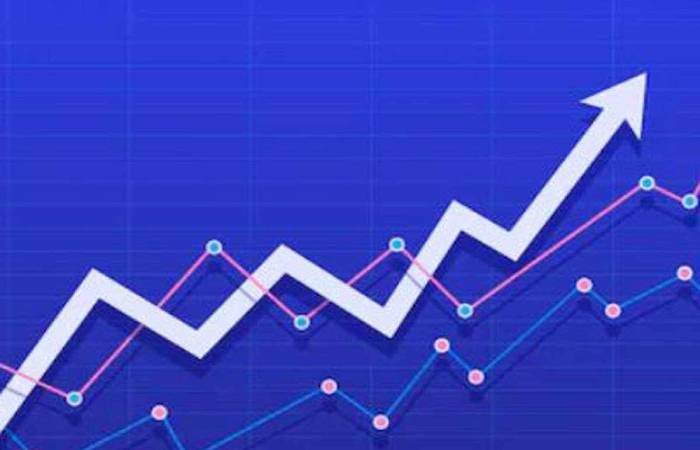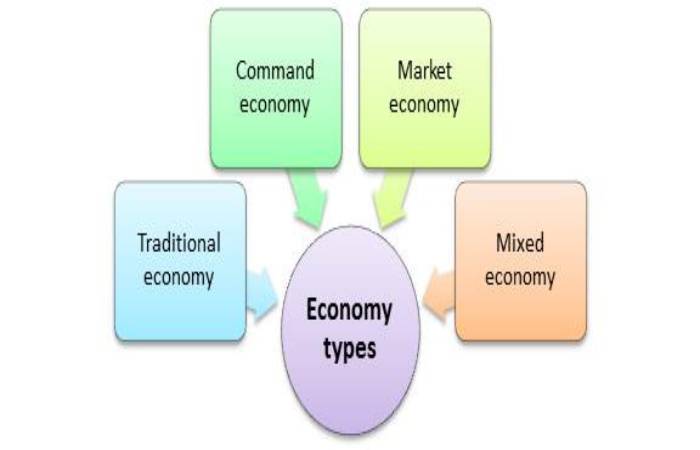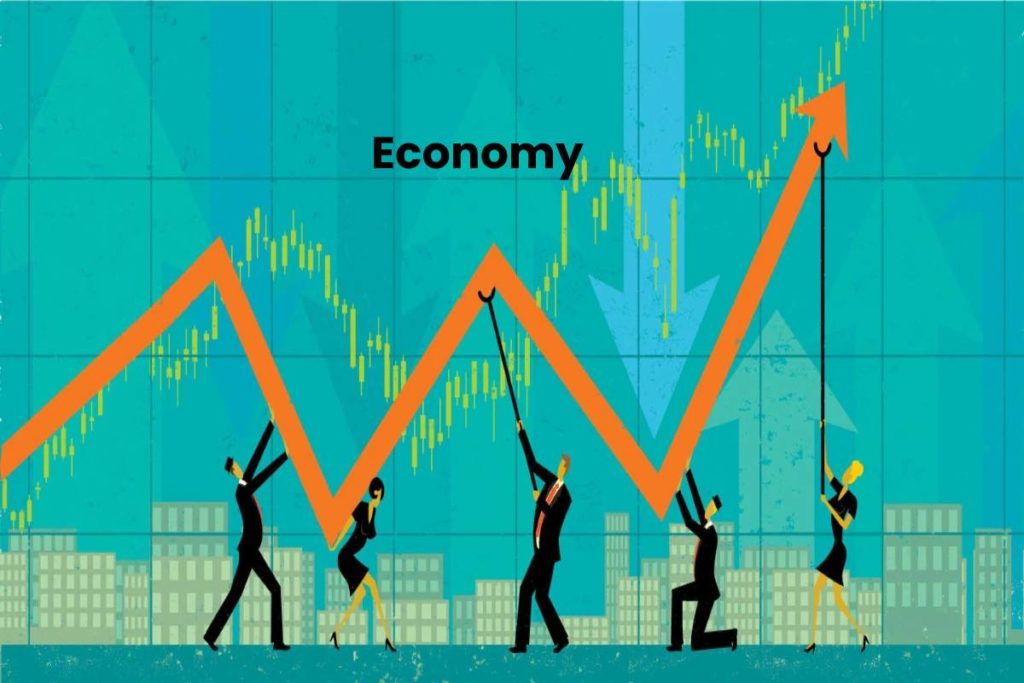Table of Contents
Economy Definition
Economy Definition, The economy is of ancient use since it derives from the Greek terms Oikos (house) and nomos (rule), which means “housekeeping” or “domestic administration.”
It is a social science that studies the laws of production, distribution, exchange, and consumption of goods and services that man needs or wants. In almost all fields, the needs of man are superior to the means available to satisfy them. Hence economic activity is derived.
It seeks to set the principles and the corresponding rules of application, destined to put natural resources, means of production, capital, work, technique, and the mechanics of human relations in the function of society’s life and thus avoid a future economic crisis.
Even being a social science, economics determine by its object of study to employ mathematical analysis continuously.
Origin of the Economy

- The ultimate goal of the economy is to improve the living conditions of people and societies. Keep in mind that available resources are limited (there is a shortage ), but human needs are unlimited.
- When a person decides to assign a resource to a specific use, he discards its use for another purpose. It is known as the opportunity cost.
- Economic science is also responsible for studying all phases related to the production process of goods and services, from the extraction of raw materials to their use by the final consumer, determining how limited resources are allocated.
- The main objects of study of the economy over time have been the setting of prices of goods and productive factors (land, production, capital, and technology) and financial markets’ behavior.
- The law of supply and demand, the consequences of State intervention on society, income distribution. The economic growth of countries and international trade.
- All these factors affect the way resources allocate. The economy tries to allocate those resources efficiently.
- As we can see, the field of economics is as broad as a human activity. And that is why, together with the fact that it is modern science, many economics theories cannot refute, unlike in the pure sciences such as mathematics or physics.
- Economists formulate principles that help understand economic problems and how to solve them.
- While some economic problems can demonstrate, such as the Nash equilibrium or the Arrow paradox.
Important Segmentations of the Economy Definition
There are several ways to segment the economy. We are going to differentiate each segmentation:
1. Study Areas
The economy can divide into two large areas of study:
Macroeconomics: Study the global functioning of the economy as an integrated whole.
Microeconomics: Study the economic behavior of companies, households, and individuals.
2. Economic Approaches
Economic thought has led to many economic theories and schools. We can separate them into two major economic approaches:
Interventionists: They defend the need for active State intervention to solve economic problems.
Classical economists or economic liberalists: They defend private property and voluntary contracts. And also, they do not consider the intervention of the State necessary to solve financial problems.
3. Philosophical Currents
Also, we can separate the economy into two types of philosophical currents:
Positive economy: It refers to postulates that can verify.
Normative economy: It base on value judgments that cannot verify.
Objects of Study of the Economy Definition
The main objects of study of the economy over time have been:
- Pricing of goods and productive factors (land, production, capital, and technology)
- The behavior of financial markets
- The law of supply and demand
- And also, the consequences of state intervention in society.
Approaches to the Economy
- Many various approaches are developed for the study of economics. Initially, as part of political and social history, only its economic aspects were considered.
- Over time, economic history was acquiring a place of its own. Institutions such as the Constitution of a country, the history of individual taxes, or a particular sector, general are part of a nation’s economic development, were studied.
- And also, the use of figures and explanations of countries’ development soon became an irreplaceable ingredient for writing economic history.
- Therefore, creating national accounts since the beginning of the 20th century in some countries was an essential factor for the discipline.
- Various economic development theories promote sometime later, driven by understanding the various changes, stages, or predictable and identifiable periods.
- These approaches were those of Marxist origin based on the class struggle, the Schumpeterian who consider changes based on innovation and technological change, and those of the style developed by Walter W.
- And also, Rostow that base on the stages of the development of societies. And economies.
- It should note that the doctrines of economic thought provide more specific definitions.
- And also, essential currents that have existed: mercantilism, physiocracy, classical school, Marxist school, Austrian school, neoclassical school, Keynesian school, monetarist school.
- It can say that the definition of economics provided by mercantilism is not the same as that provided by the classics, Marxists, or Keynesians.
- Although the essence of the economy and the object of study is similar, evaluating the production and the relationships established between agents and markets are different depending on the school to which it refers.
Growing in Economy
Economic growth is one of every society’s objectives and implies a remarkable increase in income and the way of life of all individuals in a community.
There are many ways or points of view from which the growth of a society measure. And also, one could take investment, interest rates, consumption, government policies, or policies to promote savings as axes of measurement.
All of these variables are tools used to measure this growth. And this growth requires a measure to establish how close or close we are to develop.
What are the Types of Economy?

1. Education Economy
The economics of education deals with educational goods that are a form of services produced by society. Educational assets have their peculiar characteristics: utility and scarcity.
- Scarcity (both individual and social);
- And also, Utility (both individual and social).
2. Market Economy
- It is a way of producing, consuming, and distributing wealth based on supply and demand principles through the market.
- And also, there is full freedom for economic agents to buy and sell.
3. Supply Economy
- The economist and entrepreneur generally state that consumers will benefit from a more generous supply of goods and services at lower prices with the supply economy.
- And also, typical policy recommendations from the supply economist are lower tax rates and more down legal regulation of economic activity.
4. Heterodox Economy
- Heterodox economics is considered an economist flow, promoter of economic science, instruments, methodologies, and various knowledge about neoclassical economics.
- These alternative schools of thought to the mainstream can draw on the tradition of the schools of classical thought, the new currents, or those relegated by orthodox belief.
5. Informal Economy
- It comprises more than half of the world’s workforce and more than 90% of micro-enterprises worldwide.
- And also, informality is an essential feature of global labor markets. There are millions of economic units in operation, and hundreds of millions of workers trying to earn a living in informal conditions.
- And also, the term “informal economy” encompasses a great diversity of situations and phenomena. Indeed, the informal economy manifests itself in varied forms in and within different economies.
- Formalization processes and measures to facilitate the transition to formality must tailor to the specific circumstances faced by economic units or workers in different countries and categories.
6. Free Economy
- It represents an economic system based on the free play of market forces. Through the information provided by the price system, economic agents adjust their supply and demand.
- And also, make production, consumption, saving, and investment decisions to optimize those scarce resources.
7. National Economy
- The national economy is the set of branches of production and work in a given country.
- And also, the national economy encompasses industry, construction, agriculture, transportation, the credit system, etc.
- Under capitalism, the economy base on private ownership of the means of production. It develops spontaneously, anarchically, directly subordinated to the pursuit of profit.
- Under socialism, the national economy has the character of a planned economy; its purpose is to satisfy society’s ever-growing needs as a whole and each of its members.
8. Planned Economy
- It belongs to an economic system where all decisions about what goods or services should produce, what quantity, and at what price left to the central bureaucracy.
- In practice, it can lead to gross inefficiencies, commodity shortages, and black markets’ emergence.
- And also, central planning is justifiable, on a limited scale, in countries with a meager standard of living.
9. Solidarity Economy
- The solidarity economy is a theoretical and practical search for alternative ways of doing economy based on solidarity and work.
- The principle or foundation of the economy of solidarity is that the introduction of increasing.
- And also, qualitatively higher levels of solidarity in economic activities, organizations, and institutions, both at the company level and in markets, monetary policy, and public policy.
- It increases micro and macroeconomic efficiency, together with the generation of a set of social and cultural benefits that favor society’s whole.
10. Submerged Economy
- The black economy is any economic activity that escapes the control of the treasury and the tax agency.
- This activity does not count directly in the GDP (Gross Domestic Product) of a country.
- It also involves various activities where potential taxpayers of a nation do not cancel taxes, for such a reason; their movements are cheaper.
- In turn, by not paying taxes, they commit labor fraud by hiring workers born in black, that is, without the Administration’s control.
11. Scale Economy
- It refers to the power that a company has when it reaches an optimal production level to produce more at a lower cost. That is, as shown in a company grows, its costs per unit built reduce.
- And also, the more you produce, the less it costs to produce each unit.
Also Read: What is Outbound Marketing? – Examples and More
- READ MORE:- gethealthknow

